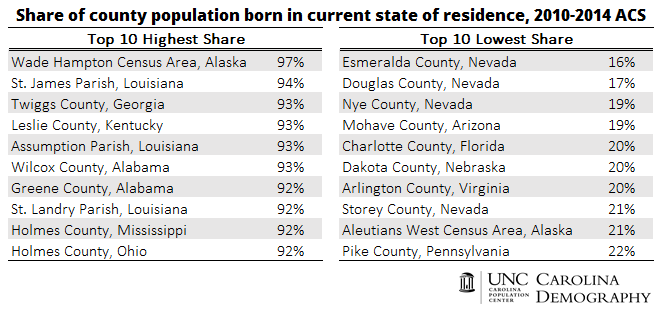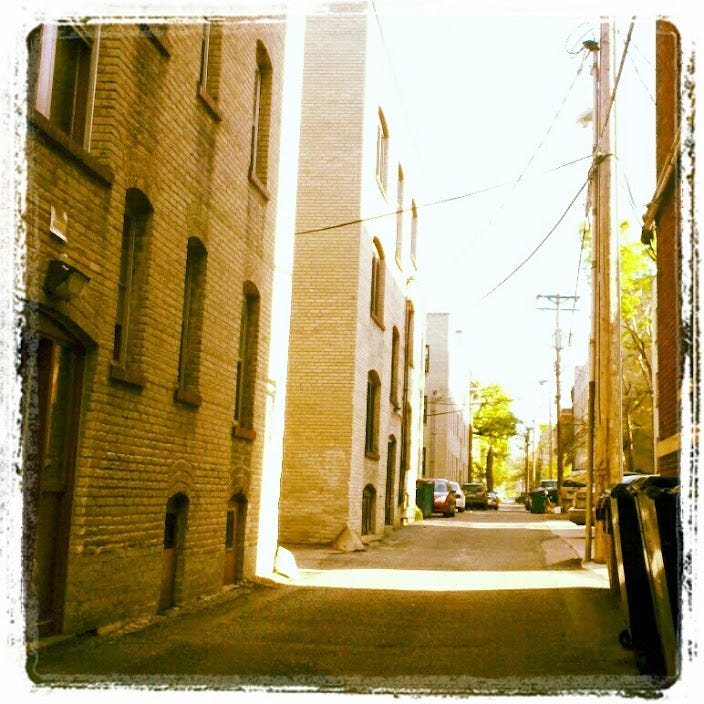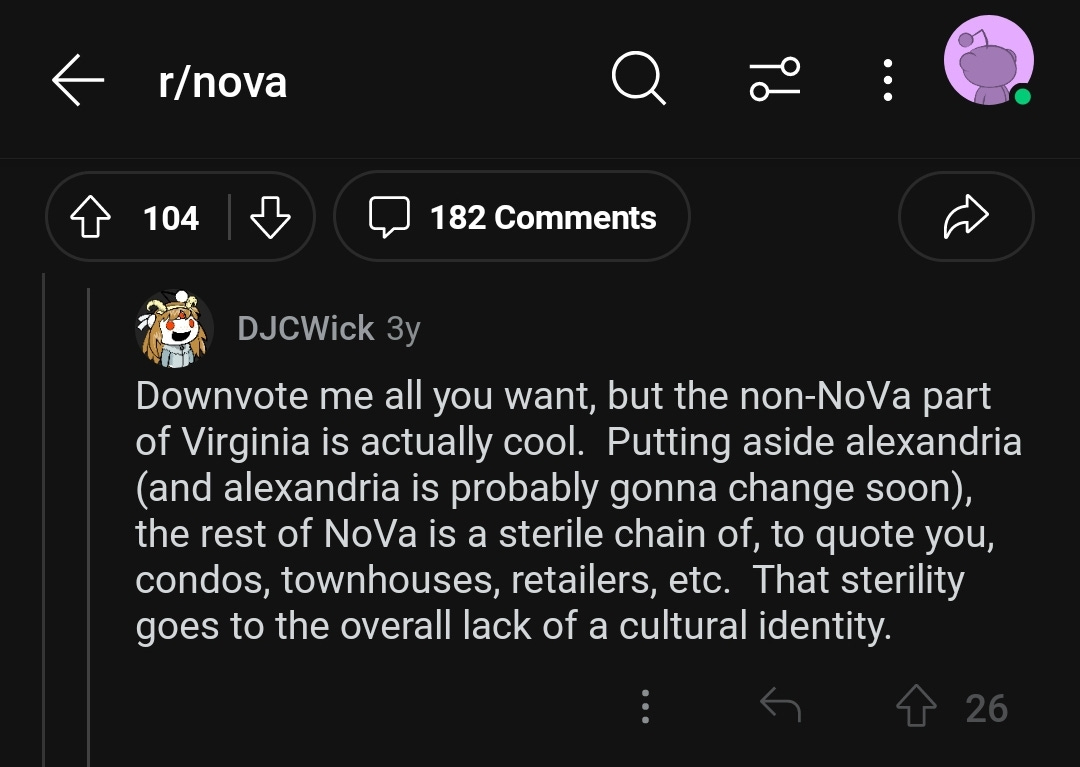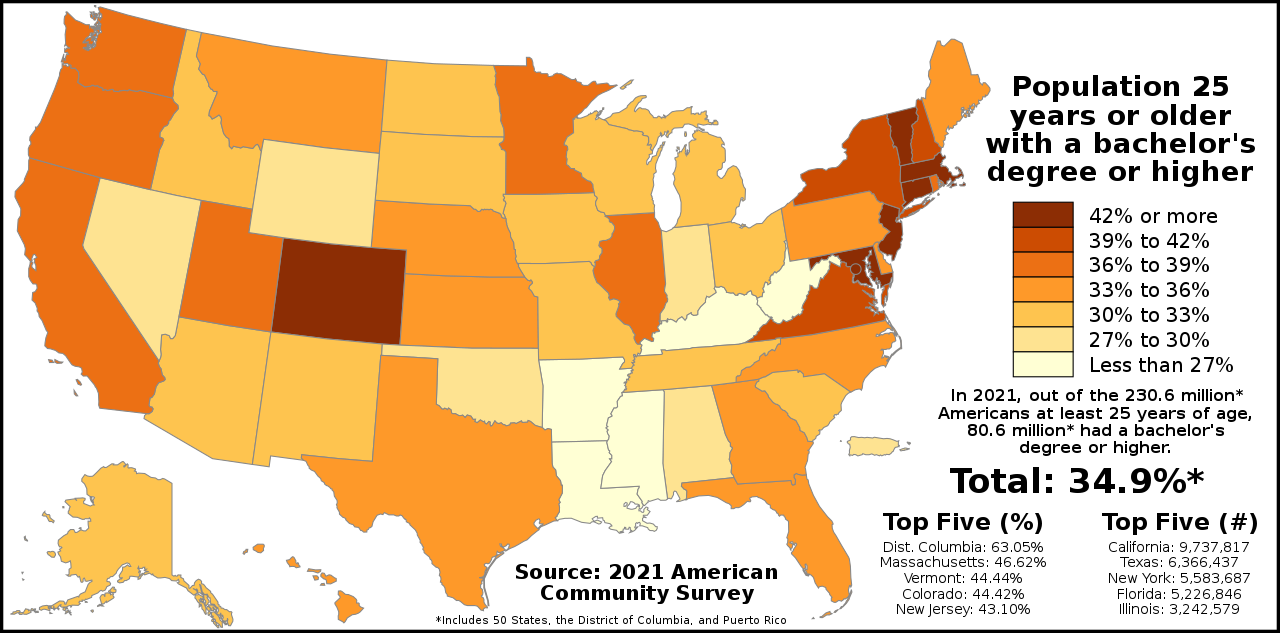This is Part Two in my ongoing series about what I’ve learned and observed in my move from Minnesota to Virginia and the interesting cultural differences I’ve noticed between the two areas. You can read the Prequel here, Part One here, and Part Three here.
What is Northern Virginia?

A little while ago, I was scrolling through my Reddit feed when I saw someone ask a question in one of the geography or political subreddits about places in a state that everyone within it hates, or places that are completely different from the rest of the state. I don’t remember exactly and I never saved the post, so you’ll just have to trust me here.
Anyway, I mentioned Northern Virginia (NoVA) vs the Rest of Virginia (RoVA). While a ton of people agreed with me, many chimed in to say that the urban/rural divide happened in every state and it wasn’t unique to Northern Virginia. They were right, of course, but that wasn’t what I was trying to convey in my answer. Sure, the Twin Cities may continually butt heads politically with Greater Minnesota, Upstate New York will always resent NYC for whatever reason, and so on, but this isn’t just Red vs. Blue or your typical series of suburbs attached to a typical nearby city.
While many major cities in the US lie on state (or national) borders, causing some of their suburbs and communities to exist in neighboring states, Northern Virginia is unique in that, really, none of the suburbs that make up Northern Virginia actually “belong” to a Virginia city at all; DC is its urban core, as it is for many of the suburbs making up the Capital Region in Maryland and one in that weird little notch in West Virginia.
I currently live in what that map defines as an exurb of DC in Stafford, Virginia, and I lived in Alexandria for a year. While the area continues to grow rapidly as housing prices in the urban core and its immediate suburbs increase, people move further south down I-95, and so there is ongoing debate about where NoVA ends and RoVA begins, how quickly the line is shifting, and what defines the border. As a Yankee transplant whose been here since 2017, have some thoughts of my own about where the difference lies, how it presents itself, and why it seems to be so stark.
A Cultural Dead Zone?
One of my most broken-record (and somewhat ignorant) complaints about living in Northern Virginia over the years has been that, compared to Minneapolis and other cities around the country that I’ve lived in or visited (even Fredericksburg, the much smaller city where we lived for a few years when we first moved out here), there seems to be no distinct culture. I’m not alone in this observation, as many questions people ask in these online and IRL debates lead directly to it in some way or another.
Like the Redditor above predicted three years ago, “greater” Alexandria is indeed blending in with the rest of its nearby suburbs and becoming absorbed into the Culture of Nothingness, with the exception of the historic downtown area that’s still holding onto its unique architecture and riverside charm. I lived there for about a year and always had the best time downtown, although quite a bit of it was too rich for my blood. I prefer the more humble yet still lively historic downtown Fredericksburg. (Watch the video below by This Is Interesting for more interesting facts about Northern Virginia, Fredericksburg, and Virginia as a whole. Carter’s got a great channel if you’re into geography and maps and data!)

Anyway, the reason for this so-called “lack of cultural identity” in Northern Virginia is multifaceted, and as a newer resident to the area, I am still searching for answers and hesitate to declare that I've figured it out, but I do have a couple observations.
“So, where are you from?”
Northern Virginia definitely falls under the category of one of those places where “everyone is from somewhere else.” It’s not unusual for people to blame “outsiders” for their area’s loss, real or perceived, of unique culture, and I do think that plays a significant role in my perception, even as an outsider myself.
While it’s true that major cities often attract people from all over the country or world and retain their unique cultural identities (like New York City or Los Angeles, for example), Northern Virginia began as, and remains, within the immediate realm of the nation’s capital, as well as the hub of government and defense contracting work in the country. This area doesn’t attract the same varied types of professionals and, perhaps most importantly, aspiring creative people as Austin or Chicago or New Orleans might. Even Minneapolis is a hub for transplants around western Wisconsin and the southern and western parts of the Midwest, known for its music scene and progressive politics, and the large number of national corporations headquartered there (Target and 3M being among the most well-known) attract a lot of young workers, especially lately.

A Mecca for Military
DC’s metro area, meanwhile, attracts a very specific group of transplant: government workers, government contractors, military, and political junkies. They come here to make big bucks working on defense contracts or getting a good spot in a government position that will provide them with the best medical benefits and a decent retirement package.
While we don’t get too many aspiring actors, artists, and musicians looking to make it big in entertainment or the arts here like they do in LA and NYC, we do get a lot of ambitious nerds and policy wonks looking to make it big in politics or the non-profit world. We also get a lot of military folks who move here in their 50s after their military retirement and settle into a contracting job to finish out their working years before settling into a luxury RV life or something. That is, arguably, a cultural marker in and of itself; it’s also, necessarily, a somewhat dull one for those not immersed within it on purpose.
Interesting personalities are de facto discouraged
One thing about the primary line of work people pursue in this area is that so much of it requires a security clearance, not to mention things like drug tests and extensive monitoring of personal behavior outside of the workplace. Many of the contractors and others working for these alphabet agencies in whatever capacity are also often military reservists or working there on active duty orders. Many of these positions might require a polygraph test which, from what I’ve been told, are so rough on some taking it that people often leave the polygraph rooms in tears, having spent hours in a room being drilled about some of the most personal details of their lives basically to ensure that they are not likely to be bribed by spies. I haven’t had to deal with the psychological stress of a polygraph, but I can begin to imagine how awful they must feel after experiencing the intensity of both my own security clearance investigation when I worked for TSA, and being interviewed as a “character witness” (or whatever they call it) for others. All together, it’s enough to scare anyone away from having a real personality out loud. And that can be a social snag if you're not, well, one of them. Take it from me: just don’t mention all the pot you smoke. It will frighten them.
Highly educated
People here are among the most educated in the country, somewhat obviously. Minnesota ranks only slightly below the DMV area, and I used to think that might be the reason why I found our culture so unique and enjoyable, but then I realized that among the peers I knew well and spent most of my time with, most of us, ranging from our early twenties to our forties, didn’t have 4-year degrees. We were, however, all curious people who went out of our way to learn new things on our own, and we enjoyed various intellectual activities more than sports or popular culture. I don’t say that to be snobbish or imply that there’s something wrong or low-class about enjoying sports or pop culture, just that it wasn’t our thing, and it was easy to find outlets — and allies — for what our things were. The Twin Cities always seemed to me to be made primarily of a quilt of alternative subcultures rather than one that was predominantly mainstream, and I appreciated that for the creativity and quirkiness it lent to the city’s overall culture. The NoVA area — at least in the exurbs and suburbs where I’ve lived so far (my time in Alexandria directly overlapped with the strictest period of Covid, so I really only experienced my tiny apartment and the nearby 7-Eleven there) — is more mainstream, by far. This isn’t necessarily bad, but it’s also kind of boring if you’re used to more variety or if it just isn’t really your style.
Because so many of the common professions here, even if they don’t require a security clearance, demand a certain public image and level of social decorum, one may limit their extra-curricular activities to the safe and corporate, like golf, video games, and drinking too much during happy hour, leaving out things like political rallies, writing, music, or other creative arts which may leave too much to interpretation and later scrutiny, especially if one is planning to run for office, ever. Often, many of these folks won’t have active or public social media accounts attached to their real names unless they’re in the political or non-profit realm, in which case it will be nothing but sanitized and mission-related.
Tidewater is being eaten
As Colin Woodard lays out in his epic remapping of the cultural borders of the United States, the eastern half of Virginia — and the entire DMV metro area — sits in what is known as Tidewater. As Matthew Speiser from The Independent summarizes,
Tidewater was built by the young English gentry in the area around the Chesapeake Bay and North Carolina. Starting as a feudal society that embraced slavery, the region places a high value on respect for authority and tradition. Woodard notes that Tidewater is in decline, partly because “it has been eaten away by the expanding federal halos around D.C. and Norfolk.”
As I write this, I'm realizing more and more that I'm just proving myself wrong about the fact that NoVA has no culture — it's just neither one I belong to nor the one I expected to find. I should have been looking south toward Fredericksburg and Richmond for the kind of cultural experience I was looking for, not north up to DC.
A city and its ✨️vibes✨️
When I visited New York several years ago, it wasn't the best experience, and I told myself it was a city just like Minneapolis or any other one, only bigger, to make myself feel better. I don't completely disagree with my past self, as most American urban areas have a distinct vibrancy, but there is definitely a vibe to New York. Of course there is. It may often be romanticized by broke writers trying to justify their poor relocation decisions to themselves, but it's not all fabricated. It’s talked about the way it is because it is that way, if you look hard enough or find yourself in the right situation, or if you have a little time separating you from the experience to look back at it through rosier glasses, or even just the seeming disappointment of where you ended up next.
Like New York, my hometown of Minneapolis also has a vibe. And like “home” for anyone, it’s a vibe I instantly recognize and feel at ease with, knowing what’s expected of me and how I can act, where I can go, how to get there without GPS, even the distinct aroma of the innards of 1930s-era Craftsman houses dotting the gridded city and the feeling and smell of the hot pavement in the summer and the violently dry air that instantly freezes your nostrils in the winter and makes everything smell like smoked ham. The Sad Clown who roams Nicollet Mall. The way an aging hipster will make any layered, cold-weather getup look effortlessly (or obnoxiously) cool while riding his fat tire bicycle to a punk show during a blizzard, where the bike rack will already be full of other fat-tired bikes who got there first.

Never happy anywhere
These days, while I can’t say I’m thrilled about where I am, I do have a certain peace now about the fact that no place may ever feel truly like “home” anymore, and that if it did, I’d just want to escape it, anyway.
In the meantime, I’m going to try to be grateful for the fact that I’ve just been given a great gift: a reminder, in my own sloppy teenage cursive, that I am where I said I always wanted to be, and that my purpose right now is to make the most of it.
You might also like:
Politics, church, and kids: a few things moving taught me, part one
The things I have learned since moving 1200 miles from home seven years ago and the interesting observations I want to talk about are plentiful, so this will be Part One of a many-part series. Read the prequel here, Part Two here, and Part Three here
Washington, DC
A collection of photos I took in Washington, DC over the past several years. All shot with an Olympus micro 4/3 digital camera whose model I don’t remember right now:
Welcome to the Swamp
I took a lot of photos at various Twin Cities parks on my recent extended anxiety attack vacation in Minnesota. I brought a micro 4/3 digital camera, a DSLR, and my old 35mm Nikon N65 and my 120mm Holga for a change of photographic pace. I haven't found a place to develop those yet (okay, I haven't actually looked yet) but despite my lack of enthusiasm …













I’ve lived here for fifty years, and I agree with everything you’ve said in this well-written piece. It’s a very conformist area, in my opinion.
I grew up in northern Nevada, but was not born there. My father, born and raised in Carson City was unique. And at the time, Northern Nevada was only just starting it's suburban "boom".
Nevada is a state heavy with transient peoples from all walks of life. When I lived in Vegas, I never met anyone born in Vegas.
I would have thought the rural counties like white pine would have skewed more local. Perhaps they do, but to hold someone to a standard of were they born in this county seems impossible to maintain in the west.